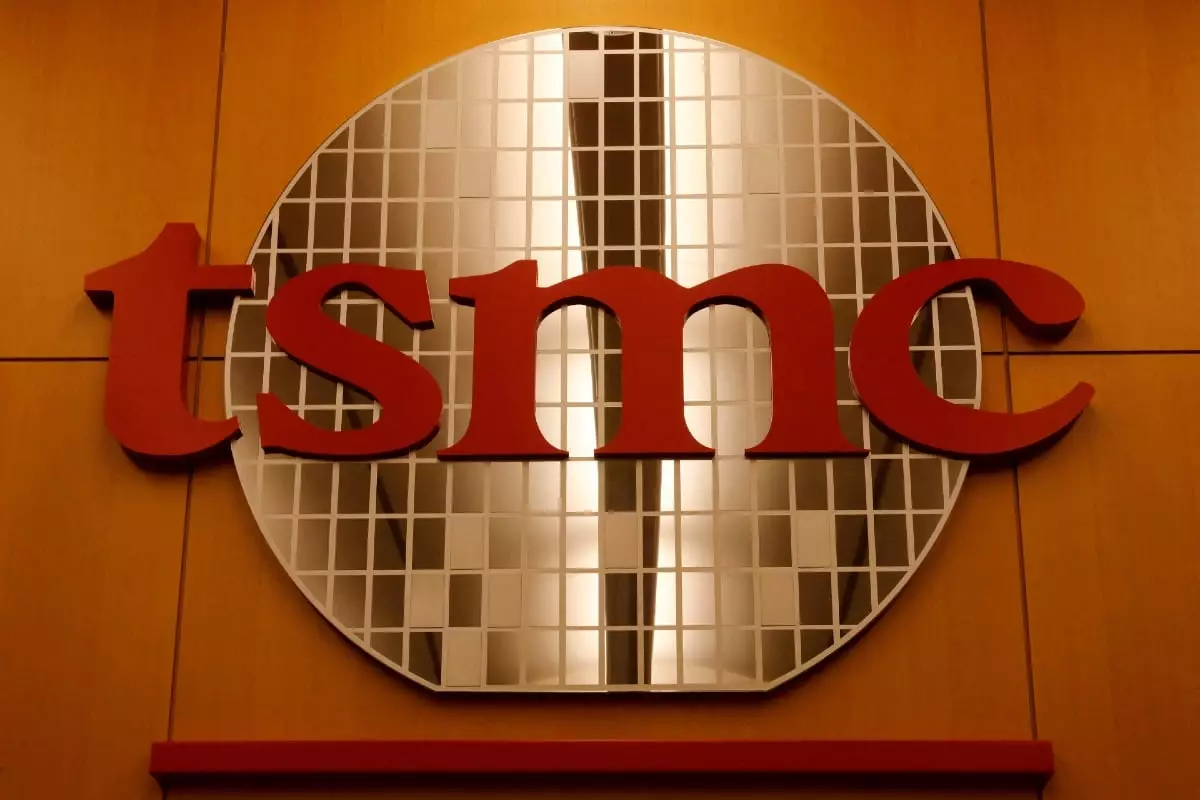In the highly interconnected world of global semiconductor manufacturing, the integrity of supply chains is paramount. The recent decision by Taiwan Semiconductor Manufacturing Company (TSMC) to suspend shipments to the China-based chip designer Sophgo has stirred considerable intrigue and concern within the tech community. This incident, which surfaced following the discovery of a TSMC chip integrated into Huawei’s Ascend 910B AI processor, has highlighted vulnerabilities in compliance with export controls and the complexities of navigating international regulations.
Reports indicate that Sophgo had ordered chips from TSMC that corresponded to the components found in Huawei’s AI processor. The situation escalated when TSMC learned that the chips it supplied to Sophgo may have inadvertently ended up being used by Huawei, a company that has been under U.S. sanctions prohibiting it from acquiring American technology. These sanctions, initiated in 2020, aim to curb Huawei’s access to essential components critical for its technological advancement, especially in the realm of telecommunications and artificial intelligence.
Amidst growing scrutiny, it remains unclear how a chip produced for a separate entity wound up in a sanctioned product. This ambiguity raises questions about the oversight mechanisms in place within both TSMC and Sophgo and whether they have adequate measures to ensure compliance with international regulations.
In an effort to distance itself from any implications of wrongdoing, Sophgo publicly stated that it maintains proper compliance with all laws and denies having any business links with Huawei. This assertion has piqued interest given the company’s affiliations and past controversies surrounding Bitmain — a cryptocurrency mining giant with its own complex history concerning semiconductor engineering practices.
Sophgo, perceived as striving to carve out a niche in the AI chip market, claims to have undertaken a thorough investigation to establish its non-involvement with Huawei. The reported investigation was presented to TSMC to affirm its commitment to compliant business practices. However, the very fact that TSMC felt it necessary to suspend shipments raises skepticism about the reliability of assurances provided by chip-designing entities such as Sophgo and their supply chain frameworks.
With the emergence of incidents like this one, the stakes have become remarkably high for companies operating within the semiconductor industry. TSMC, the world’s largest contract chipmaker, has been proactive in communicating with the U.S. government, signaling its efforts to remain on the right side of legalities surrounding technology exports. The firm has not supplied Huawei since mid-September 2020, implying a cautious approach to maintaining regulatory compliance.
However, the incident underlines a significant regulatory challenge. As companies expand their reach into new markets and technologies, they increasingly face the risk of inadvertently engaging with entities that are under sanctions. The U.S. Commerce Department’s awareness of this incident and its potential implications for export control violations illustrates the diligent scrutiny applied to cross-border supply chains, which could result in far-reaching consequences for companies that fail to adhere to these regulations.
This event stimulates a broader conversation regarding the competitive landscape of semiconductor industries in the U.S. and China, particularly in light of tensions surrounding technology leadership. As the demand for advanced AI components grows, companies like Sophgo, with ties to established giants like Bitmain, are positioned uniquely within an arena dominated by leaders such as Nvidia and AMD. However, incidents involving regulatory infractions may undermine trust and damage relationships with crucial suppliers like TSMC, inhibiting their potential to innovate and compete effectively.
The situation also raises critical questions about strategic alliances and the ethical obligations of businesses operating in such turbulent geopolitical waters. Moving forward, companies must enhance their compliance strategies and risk assessments to shield themselves from the adverse ramifications of regulatory entanglements.
The suspension of shipments between TSMC and Sophgo reveals not only a singular incident but also highlights a critical intersection of technology, regulation, and international trade. As the semiconductor industry grapples with the implications of geopolitical tensions, the pursuit of adherence to export controls, ethical practice, and robust supply chain security has never been more pressing. The resolution of this incident will likely influence future operations and relationships within the semiconductor landscape, as stakeholders work to navigate an ever-evolving regulatory environment.

Leave a Reply